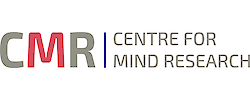Research Section Psychiatric Genomics and Epigenomics
HEAD OF DIVISION
AIMS & PROJECTS
The Division of Psychiatric Genomics focuses on the genetics of psychiatric disorders in clinical care as well as in scientific research.
In the context of our specialist outpatient clinic for genetic diagnostic testing in psychiatry, we investigate the genetic causes of mental disorders in specific clinical constellations (e.g. autism spectrum disorders, intellectual disability, psychoses with additional symptoms such as epileptic seizures or cardiac defects/arrhythmias). Scientifically, we are also interested in the application of new technologies and analytical methods such as next generation sequencing (NGS) (exome/genome sequencing and transcriptomic analyses) or polygenic risk scores (PRS) in clinical diagnostic testing.
In addition, the expansion of the Bonn Biobank for Mental Health (Mental Health Biobank Bonn) is one of our central tasks. Our aim here is to make data and biomaterials from routine clinical care as useful as possible for research purposes. For our research projects, we use genomic and other comprehensive molecular ("-omics") data, but also detailed phenotyping data generated in routine clinical practice on a quotidian basis. Here, harmonization and integration of our own cohorts with large national and international cohorts is of great importance.
In addition to clinical care, basic genetic research represents the major focus of the division. For many years, we have been an active part of a number of national and international consortia working on the identification of genetic risk factors for common, complex genetic diseases (e.g. PGC, ConLiGen, COVID-19 HGI, DeCOI). These have been highly successful in establishing diverse genetic risk factors for both psychiatric and non-psychiatric disorders in recent years. What is lacking, however, is a better understanding of how these genetic risk factors lead to mental health disorders. In our work, we seek to bridge this gap between the identification of genetic risk factors and their pathophysiologic consequences. This in-depth understanding of the underlying pathophysiology is the basis for developing new therapeutic approaches.
Methodologically, we employ the following strategies:
- Statistical genetics (association studies, polygenic risk scores)
- Omics (lipidomics)
- High-throughput functional follow-up (CRISPR screens)
Phenotypically, we focus on:
- Bipolar & Depressive Disorder
- Schizophrenia
- Transdiagnostic approaches
TEAM
- Ayda Abolhassani (PhD student)
- Dr. Caroline Baumgartner (senior physician and postdoctoral researcher)
- Amanda Boegysanto (student)
- Dr. Jule Daniels (physician and postdoc)
- Dr. Khaoula Ferchichi (postdoctoral researcher)
- Lea Fischer (PhD student)
- Dr. Mahesh Gouda (postdoctoral researcher)
- Dr. Laura L. Kilarski (physician and postdoctoral researcher)
- Fatima Mohamedelmugadam (doctor and PhD student)
- Sarah Ricken (medical student)
- Josefine Rosar (medical student)
- Eduardo Stegensek-Meija (Study Nurse)
- Anoja Thanabalasingam (PhD student)
JOINING OUR TEAM
We always welcome applications from potential new team members, such as master's students or medical doctoral students!
SELECTED PUBLICATIONS
- Tkachev A*, Stekolshchikova E*, Vanyushkina A, ..., Schulte EC*, Khaitovich P*. Lipid Alteration Signature in the Blood Plasma of Individuals With Schizophrenia, Depression, and Bipolar Disorder. JAMA Psychiatry 2023, 80(3):250-259.
- Kalman JL, Burkhardt G, Adorjan K, ..., Schulte EC. Biobanking in everyday clinical practice in psychiatry-The Munich Mental Health Biobank. Front Psychiatry. 2022, 13:934640.
- Niemi MEK, Karjalainen J, Liao RG, ..., Schulte EC, et al. Mapping the human genetic architecture of COVID-19. Nature 2021, 600(7889):472-477.
- Mullins N, Forstner AJ, O'Connell KS ..., Schulte EC, et al. Genome-wide association study of over 40,000 bipolar disorder cases provides new insights into the underlying biology. Nat Genet 2021, 53(6):817-829.
- Wray NR, Ripke S, Mattheisen M, ..., Schulte EC, et al. Genome-wide association analyses identify 44 risk variants and refine the genetic architecture of major depression. Nat Genet 2018, 50, 668-681.
- Schulte EC*, Kousi M*, Tan PL, et al. Targeted resequencing and systematic in vivo functional testing identifies rare variants in MEIS1 as significant contributors to restless legs syndrome. Am J Hum Genet 2014, 95:85-95.
- Schulte EC, Knauf F, Kemlink D, et al. Variant screening of the coding regions of MEIS1 in patients with restless legs syndrome. Neurology 2011,76:1106-1108.
FULL PUBLICATION LISTS & PROFILES
- ORCID: 0000-0003-3105-5672
- Researchgate: https://www.researchgate.net/profile/Eva-Schulte-2
- GoogleScholar: https://scholar.google.de/citations?hl=de&user=cfLL5VUAAAAJ















